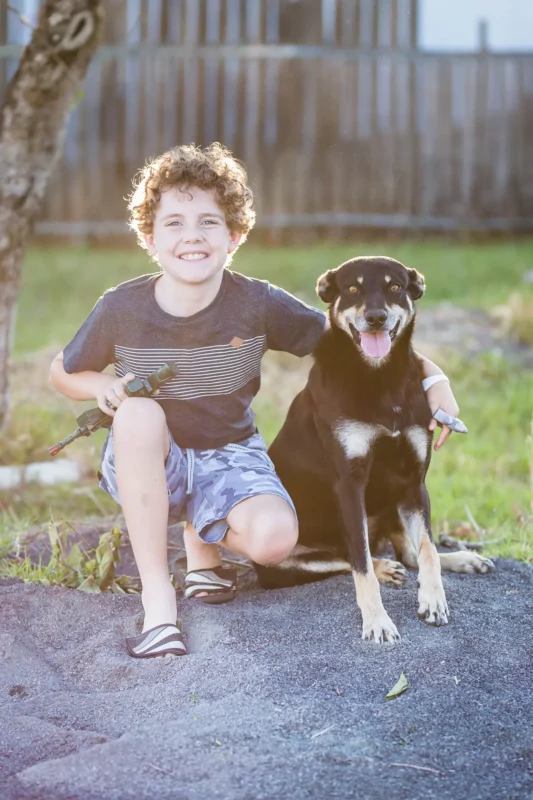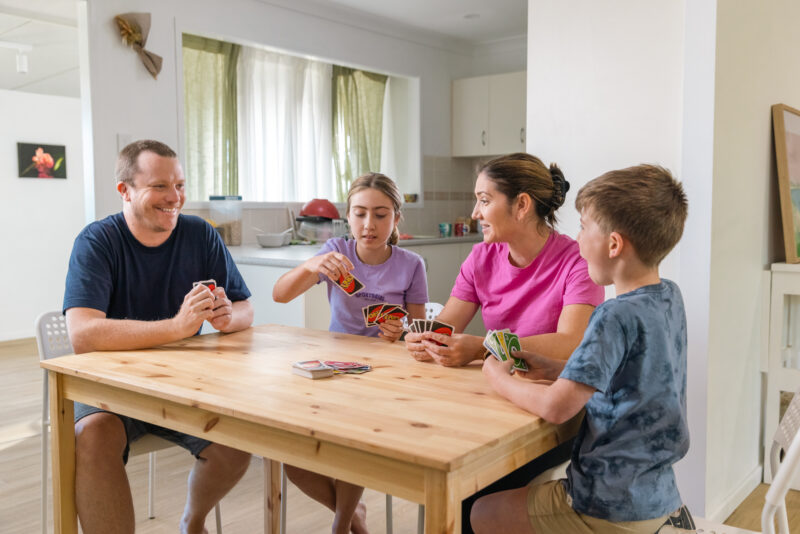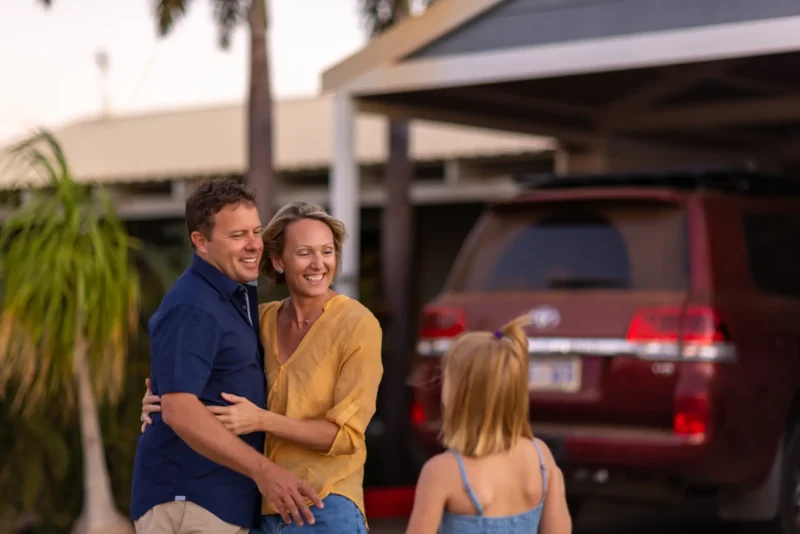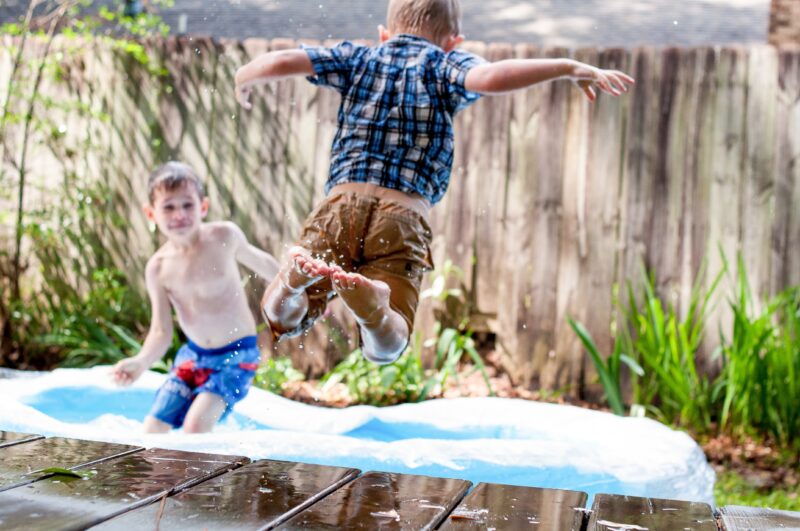About emergency foster care
Emergency foster carers play a crucial role in ensuring that children have a safe and supportive place to stay, sometimes for a night, a weekend, or a few weeks. These placements occur when a child is in immediate danger or their living situation has suddenly become unsafe.
Children in emergency care may have experienced trauma, neglect, or domestic violence. As an emergency foster carer, your role is to provide comfort, security, and reassurance in an unfamiliar and often distressing time. You don’t need to have all the answers—just a willingness to offer warmth, patience, and understanding.
Almost anyone is eligible to foster a child. Take our quiz to find out if you are eligible.
The goals of emergency foster care
Emergency foster care provides immediate safety and security for children in crisis. The primary goals include:
- Providing urgent stability – Ensuring children have a safe and welcoming environment at a time of uncertainty.
- Reducing trauma – Offering comfort, reassurance, and practical care to help children feel safe.
- Meeting basic needs – Ensuring children have food, clothing, a safe place to sleep, and emotional support.
In these moments of uncertainty, the kindness and patience of a foster carer can make an enormous difference in a child’s sense of safety and trust.
What’s the difference between emergency and short-term foster care?
Emergency and short-term foster care both provide temporary placements, but they differ in their purpose and length:
- Emergency foster care is for children who need immediate protection, often arriving at short notice and staying for a few nights to a few weeks. The goal is to provide a safe place while a longer-term solution is arranged
- Short-term foster care lasts longer and provides stability while family reunification, kinship care, or a long-term placement is explored.
Both types of care are vital, and some foster carers choose to provide both emergency and short-term care depending on their availability.
How to become an emergency foster carer
If you’re flexible, calm under pressure, and able to provide care at short notice, emergency foster care may be a great fit for you. The process to become an emergency foster carer includes:
- Expression of interest: Submit your details to start your foster care journey.
- Training and assessment: Participate in training sessions to prepare for the role.
- Home assessment: Ensure your home is a safe, welcoming environment for a child.
- Approval and matching: Once approved, we work with you to find the right child for your family.
Who is eligible to become a foster carer?
Support for emergency carers
Emergency care can be unpredictable, but you won’t be doing it alone. Anglicare Southern Queensland provides:
- 24/7 on-call assistance – Support when you need it, day or night
- Dedicated caseworkers – Ongoing guidance and advice from experienced professionals
- Training and development – Access to workshops, courses, and learning opportunities
- Financial support – Carer allowances to help cover the costs of raising a child
- Peer support networks – Connect with other foster carers for advice and encouragement.
We ensure you have everything you need to provide the best possible care for the child in your home.
Resources

Are you Eligible?
Almost anyone can become a foster carer. Take our Quiz to find out if you’re eligible.

Start Your Journey
Start your foster care journey. Complete our expression of interest to apply to become a foster carer.

10 Facts About Foster Care
There are a lot of foster care myths out there, but what are the facts? Our guide helps you understand.

Foster Care for Families Guide
Fostering is a family commitment and this eGuide supports open conversation about whether fostering is suitable for your family.

Advice for Future Foster Carers
Becoming a foster carer is a pretty incredible thing to do. Enjoy these supportive words and advice from foster carers.

Foster Care Information Kit
There is no right or wrong journey to becoming a foster carer, only your journey. We’re here to help you along that path.
Hear from emergency carers
Opening your home to a child in crisis can be one of the most rewarding decisions you ever make.
Start your foster care journey today
Becoming an emergency foster carer is an opportunity to change a child’s life forever. If you’re ready to take the first step, express your interest or contact us at 1300 610 610.
Frequently asked questions
Placements can happen at any time, often with little warning. You can set boundaries around when you are available to take placements.
Emergency carers provide immediate, short-notice care when a child needs urgent safety due to crisis, neglect or family instability. Placements may last a night, a weekend or a few weeks while Child Safety plans next steps. Anglicare offers 24/7 support, training and guidance to ensure emergency carers feel prepared to meet children’s needs safely and calmly.
Yes, you can indicate your preferences for age, gender, and specific needs when you apply.
Yes, foster carers receive an allowance to help cover the costs of caring for a child.
Emergency foster carers receive the standard Queensland Caring Allowance, paid fortnightly to cover food, clothing, transport and other daily needs. Some children may receive additional supports depending on their urgent circumstances. Anglicare helps emergency carers understand allowances, reimbursable expenses and what supports are available when placements happen at short notice.
The Caring Allowance varies based on the child’s age and assessed needs and is reviewed annually. It covers day-to-day expenses like meals, clothing, school items and local transport. Emergency placements may receive one-off supports to meet urgent requirements. Anglicare outlines all available allowances during training so carers clearly understand the practical financial support provided.
Each child’s situation is different. Some return to their families, while others transition into short-term or long-term care.
Our person-centred approach means we work with you to find out how foster caring can fit with your lifestyle. We connect with you at every stage of your foster care journey, supporting and connecting you to training so you will have the skills you need to be a great carer. We also offer resources and access to wider community groups.
If you decide to take the foster care journey, a Foster Care Case Practitioner will be with you every step of the way. The role of a Case Practitioner is to recruit, train, assess, and support foster carers.
Case Practitioners are also responsible for matching children with an appropriate foster family. Case Practitioners are part of a wider team who also provide intensive support to children and carers.
Almost anyone who wants to make a difference in a child’s life can become a foster carer.
To be eligible to apply, you’ll need to be at least 18 years of age. You also need to commit to home safety and personal background checks, as well as foster care training, so you have the skills you need to be a great carer.
Many people rule themselves out and think they can’t apply. It doesn’t matter if you are single, male or female, in a same sex partnership, have other children at home or no children at all. What matters is your passion to make a difference.
What is Anglicare’s purpose?
-
We’ve been caring for Queenslanders for over 150 years
-
We connect with people at every stage of life and respond with compassion and humility
-
Our team is experienced, dedicated and equipped to help
-
We advocate to inform positive social change
-
Our vision is to create a more loving, just and inclusive society.
Contact Us
Submit this form or call us to learn more about foster care at Anglicare. Our team is available between 9am and 5pm weekdays on 1300 000 828
Foster & Kinship Care Enquiry
Got questions?
If you have questions about becoming a foster carer, please call us or download our comprehensive guide.
